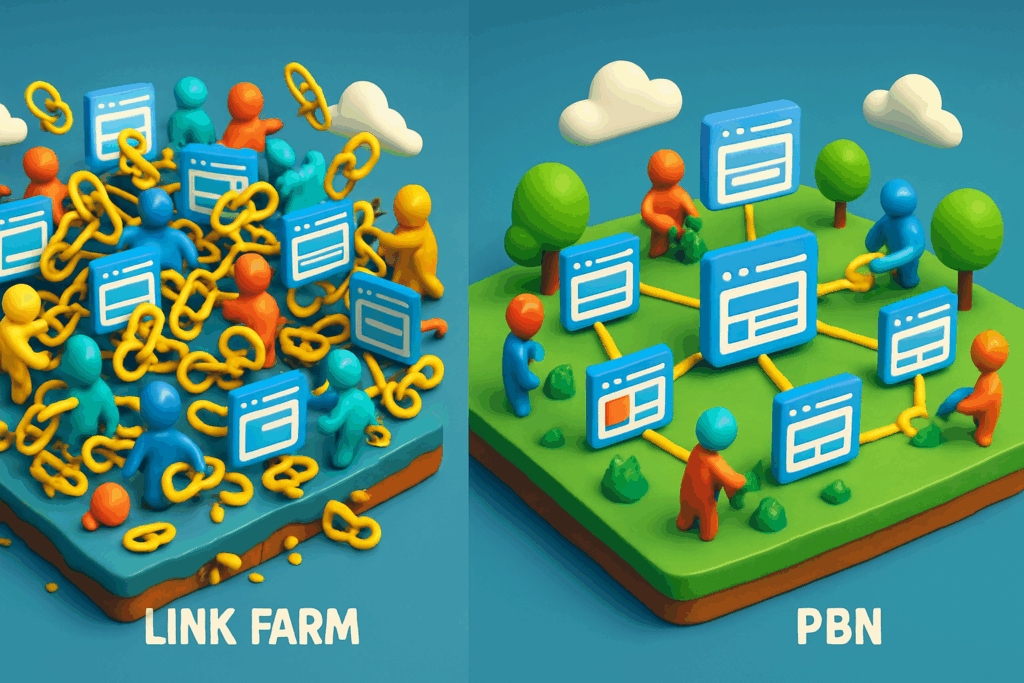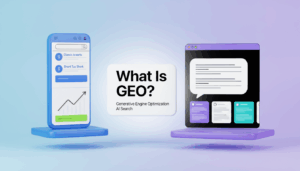There’s a lot of confusion in the SEO world when it comes to Private Blog Networks (PBNs) and link farms. The terms are often thrown around interchangeably, but in reality, they represent very different things. Let’s break it down clearly.
Table of Contents
ToggleWhat’s a PBN, Really?
By definition, a PBN is not for public sale. That’s the starting point.
-
If you open your PBN to sell outbound links, it stops being a PBN and immediately becomes a link farm.
-
A properly built PBN is a controlled, private asset—not part of a public marketplace.
So, while some people try to classify link farms as “low-quality PBNs,” that simply isn’t correct. A link farm is a link farm. Period.
Why “Link Farm” Has a Bad Reputation
The term link farm has become derogatory, primarily because those in the SEO industry who work with trusted, branded domains look down on it.
That being said, link farms themselves don’t always mean “garbage domains.” They can include both high-quality and low-quality sites. The industry nuance is this:
-
High-quality link farms often operate with decent domains, but eventually sell off expired or “zero’d” sites.
-
Low-quality link farms are just spammy networks with little to no power.
Think of high-quality link farms as operating a bit like the Sub-Prime Mortgage Crisis—bundling up assets that look fine for now, but are built on shaky foundations.
The public perception – as demonstrated by this “AI Generated” image by Perplexity – is that PBNs are highly curated whereas Link Farms are industrial low quality PBNs. The truth is that Link Farms run the gammut of good to bad….high authority to zero.

Buying Links: Risk vs. Reward
Yes, buying backlinks can work. In fact, it isn’t always inherently “negative” in the eyes of Google’s ranking system. But it’s important to understand how Google treats links:
-
Google typically targets the source of the link, not the buyer.
-
In 90% of cases, instead of penalizing buyers, Google simply de-ranks the outbound (linking) domain.
That’s why many link sellers are constantly cycling through domains—they burn out over time as their value drops.
Google’s Approach: Algorithms First, Manual Actions Rare
Here’s where people often overcomplicate things. Google doesn’t “hunt” link farms. It doesn’t look at shared Google Search Console accounts or manually curate the web. That would be impossible.
Instead, every single page goes through Google’s algorithm, which applies rules and heuristics at scale to decide:
-
Does this page deserve to rank?
-
Does this link pass authority?
-
Or does it get ignored?
That’s why they call it an algorithm—it processes everything, automatically.
What About Manual Actions?
-
Manual actions are extremely rare and only occur when a site falls into an egregious violation.
-
Historically, updates have aimed to affect no more than 5% of rankings at a time (a principle Google held since Matt Cutts’ era).
So while penalties exist, they’re a small fraction of what actually impacts sites.
The Silent Kill: Authority Passing and Topical Relevance
In recent years, Google has quietly shifted its strategy away from heavy-handed penalties. Instead, it changes how authority flows.
For example:
-
Google now requires that a page actually rank and get organic traffic before it can pass meaningful link equity. That simple adjustment alone wiped out the effectiveness of a huge portion of link farms without needing to penalize anyone directly.
-
In the December 2024 update, Google tightened how it calculates Topical Authority. The fallout? Even massive players like HubSpot lost traffic, showing no site is immune when relevance signals get recalibrated.
Final Thoughts
To put it plainly:
-
PBNs are private, controlled networks.
-
Link farms are public link-selling schemes.
-
Google typically neutralizes value rather than punishing.
-
Updates are designed to quietly reduce abuse while keeping the system scalable.
So, the next time the PBN vs. link farm debate comes up, remember—it’s not just semantics. It’s about how Google evaluates networks at scale and how the SEO industry uses (and misuses) these concepts in practice.
Would you like me to optimize this post a bit more for SEO readability (with headings like “Is Buying Links Safe in 2025?” or “Do PBNs Still Work?”), so it attracts organic clicks as well as informs?




